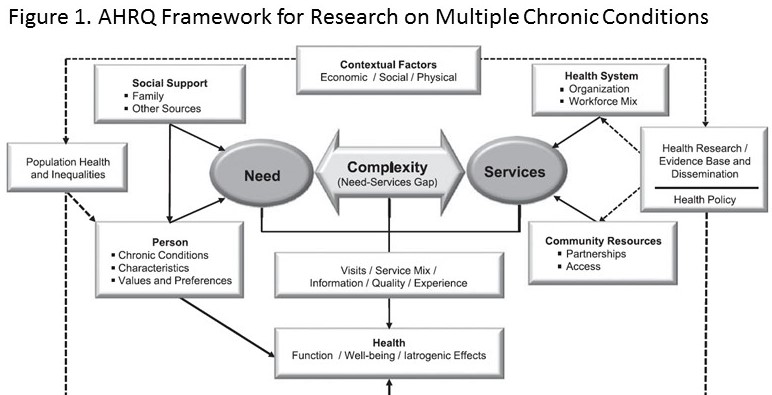Curriculum
The program’s goals are to:
- Develop scholars’ insight into the causal factors of health outcomes and potential targets for improvements in the care of older adults
- Develop scholars’ interdisciplinary research skills
- Build trainee insight into the experiences of vulnerable older adults
- Foster scholars’ appreciation for interdisciplinary research
- Launch scholars’ into successful research careers
The program will focus on several core curricular competencies:
- Familiarity with Basic Concepts in Aging, and Experiences of Older Adults and Cognitive Decline
- Framework for Understanding the Factors that Drive Health Outcomes Among Older Adults
- Promotion of Interdisciplinary Research in Dementia
- Research Skills
- Developing Research Questions and Grounding Research in a Theoretical Framework
- Research Study Design
- Data Analysis
- Research and Study Management
- Research Skills Specific to the Study of Older Adults and Cognitive Deficits
- Research Ethics and Human Subjects Protections
- Research Presentation Skills
- Career Advancement Skills
Areas of Research Focus include:
Behavioral Research
Health Systems
Health Disparities
End of Life and Palliative Care
Psycho-social Research

Didactic Education: Fellows may take credit bearing courses in a variety of topics to support development of their research career, and apply those credits toward pursuit of a masters or doctorate degree in clinical research. They can take courses at the Icahn School of Medicine or at other institutions. In these endeavors fellows join trainees from other medical specialties and affiliated health sciences for courses in basic and advanced clinical epidemiology and biostatistics, health services research, medical ethics, and others. For more information regarding the degree program at Mount Sinai, visit the MS in Clinical Research.
Clinical Responsibilities: Clinical fellows will have the opportunity to spend up to 10% of their time in their respective areas of expertise.
Teaching Responsibilities: There will be no formal teaching responsibilities, though opportunities for research-related teaching that are consistent with the objectives of the fellowship will be available to interested fellows.
|
|
M
|
T
|
W
|
T
|
F
|
|
8am-12pm
|
Clinical care (if applicable)
|
Research
|
Research
|
Grand Rounds
8:30am-9:30am
|
Research
|
|
Research
|
|
12pm-1pm
|
Works in Progress Meeting
|
Meeting with Primary Mentor
|
Journal Club
|
Research
|
|
1pm-4pm
|
Research
|
Research
|
Research
|
Research
|
Clinical care (if applicable)
|
|
5pm-6pm
|
Coursework
|
Coursework
|
|
Geriatrics Department Grand Rounds
|
|
- Multidisciplinary Works in Progress Lunches (Tuesdays at noon): Research works in progress (WIP) meetings are weekly and alternate between the Division of General Internal Medicine and the Department of Geriatric and Palliative Medicine, allowing trainees to learn about proposed, new, and ongoing research by their peers and research faculty. Trainees are expected to present their research proposals or project updates at the WIP meetings at least once a year.
- Grand Rounds (General Internal Medicine, Thursdays at 8:30am; Geriatrics and Palliative Medicine, Thursdays at 5:00pm): These weekly clinical conferences cover a variety of clinical topics. Attendance is selective, allowing trainees to focus on clinical topics most pertinent to their research and clinical interests.
- Primary Mentor Meeting (weekly): Fellows meet weekly with their primary mentor to discuss progress on projects and other endeavors.
- Career in Research Lunches (monthly): Jenny Lin holds a lunch meeting to discuss aspects of a successful career in research. Topics discussed range from job hunting, networking, NIH funding, leadership, running research projects, mentorship, teaching portfolio, clinical care issues (when applicable), career goals and job opportunities.
- Interdisciplinary Journal Club (monthly): The program directors host a journal club that brings together fellows from a couple of T32 programs to focus on interdisciplinary epidemiologic and statistical methods.
- Program Advisor Meeting (monthly): Fellows meet monthly with their program advisor, one of the Program Directors. The meetings serve as guide posts for fellows as they develop their fellowship research projects. The advisors help to ensure fellows are meeting learning milestones and help to fill in knowledge gaps through guidance on courses, resources, and connections to other faculty.
- Non-traditional Research Paths Seminar Series (quarterly): The program invites scientists from non-academic settings to speak about their career trajectory and their work outside of academia.
- Medical Student Training in Aging Research (MSTAR) Didactic Programs (annually): Our fellowship partners with the medical school to offer training in aging research. Fellows are welcome and encouraged to attend programming throughout the summer. Coursework focuses on research methods, formulating questions and hypotheses, study design (observational vs. experimental research), statistical inference, estimating power and sample size, and mixed methods research.
- Research Retreat (annually): The program partners with the Cancer Prevention and Control Fellowship Program to host an annual retreat in the spring. It focuses on timely themes in research with priority and high-risk populations.
- Scientific Writing:
- A writing workshop at Mount Sinai led by Dr. Swan, Associate Director for Writing in Science at Princeton University.
- Lessons in Scientific Publishing, which teaches use of library databases, organizing references, writing an effective literature review, manuscript submission, the peer review process, and getting work noticed for maximum impact.
- Grant Writing:
- A 6-week interactive grant-writing seminar that explains funding mechanisms and teaches how to write a grant proposal. Participants bring their grant proposal ideas to engage in interactive discussions and develop a full grant proposal by the end of the seminar.
- Leadership:
- LEAD seminars, which include personal and situational leadership, conflict resolution, unconscious bias, communication and influence, negotiation, and many others.
- Academic Career and Life Skills Program, a series of seminars that will cover communication and oral presentation skills, negotiating a job, preparing your biosketch, and life-work balance.
